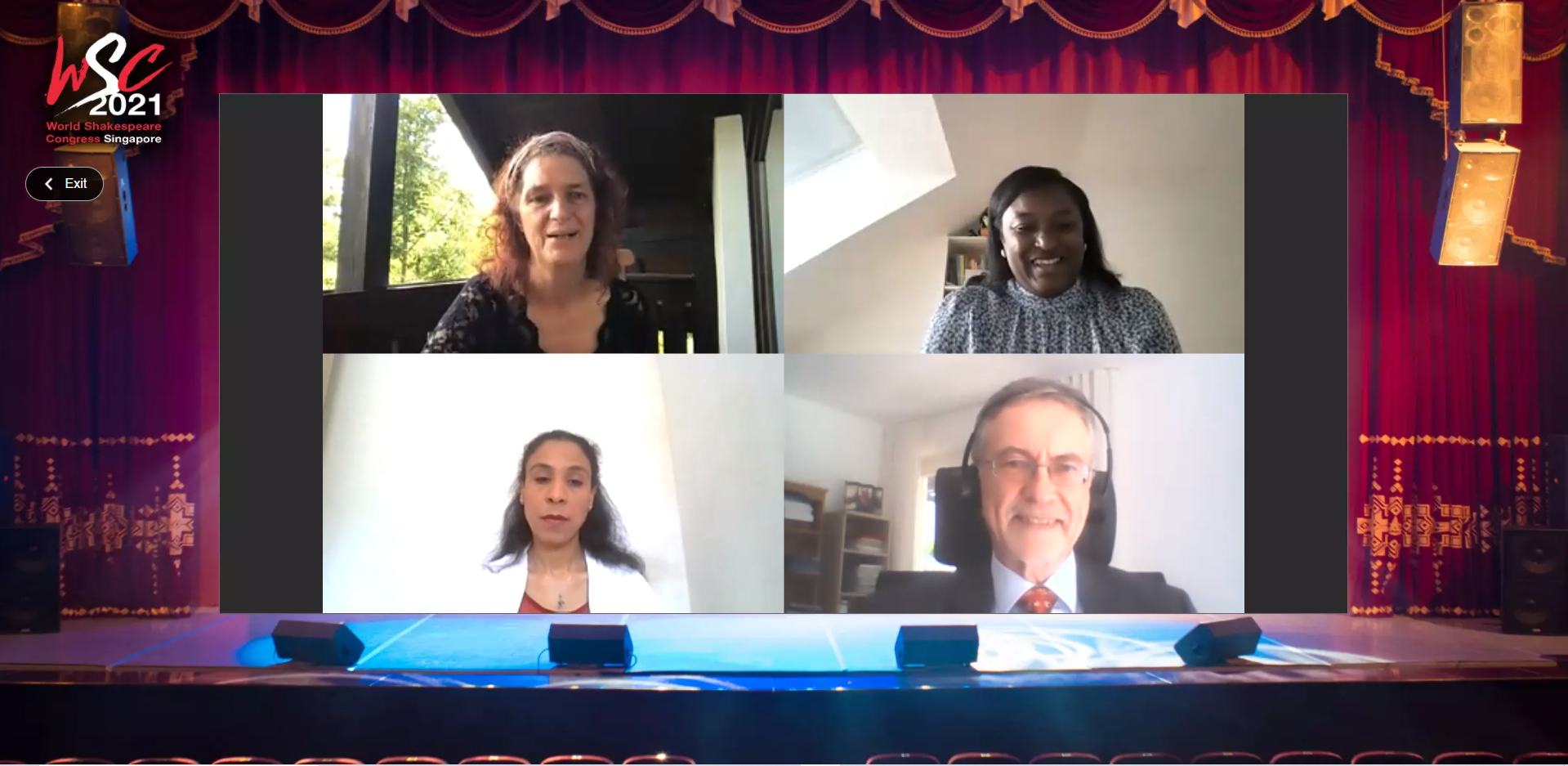News
Cluster Project “Travelling Knowledge” at World Congress
25.08.2021
The Cluster's Research Section "Knowledges" took center strage during the World Shakespeare Congress in Singapore when the team members of the Cluster project "Travelling Knowledge and Trans*textuality" presented their work.
Report by Prof. Dr. Michael Steppat, University of Bayreuth
The Africa Multiple Cluster of Excellence's project “Travelling Knowledge and Trans*textuality” (RS Knowledges) has been presented prominently at the World Shakespeare Congress (WSC) in Singapore. This WSC, lasting from 19 to 23 July 2021, has turned out to be the largest and most inclusive Shakespeare Congress ever. At its top level a Panel of four presenters was devoted to the ongoing Cluster project, which aims to investigate, for the first time, whether and how African (and Middle Eastern) textualities have influenced the drama of Shakespeare and his contemporaries. Against a scholarly consensus that such influences are almost exclusively Southern and Western European, the Panel group argued strongly for African sources in Shakespearean drama.
The first to do so was Susan Arndt as chair. In her presentation on “Trans*textuality in William Shakespeare’s Othello”, highlighting the importance of oral and folktale influences on Shakespeare, Arndt gave an overview of the methodology of studying folktales, before introducing the key categories of re*source and trans*textuality: if Text A influenced a Shakespearean Text B, earlier materials that influenced Text A can be regarded as influences on Text B. Arndt then presented the case study of Shakespeare’s Othello in conjunction with Ahmed Yerima’s Otaelo to illustrate these ideas. Next Taghrid Elhanafy, who has written a pioneering book on Trans*textual Shakespeare, presented “The Trans*textuality of the Book of Alf Layla wa Layla and Shakespeare’s Drama”, offering evidence of this source as having influenced Othello and The Taming of the Shrew, while also describing the Arabic and Persian Layla and Majnun as a source of Romeo and Juliet. Ifeoluwa Aboluwade, who has written a book on the dramatic work of Femi Osofisan, was then able to create a wide-reaching theory frame in “Transcultural Encounters: West African Pre-texts and Epistemes in Shakespeare’s Macbeth”. Aboluwade drew on the concepts of relationality and diffraction to show how earlier texts become interlaced with later recipients on a pattern or thematic question produced in the reception process. Thus Aboluwade demonstrated how the appearance of the “Weird Sisters” in Macbeth is reminiscent of the West African trickster Esu. Finally Michael Steppat (Shanghai/Bayreuth) in “Transformative Cultural Transfer and African Presences” argued that the study of sources has been based on a set of ideological assumptions and colonial drives operating as an aesthetic system. To move beyond this, Steppat urged considering oral discourse and eyewitness accounts in light of transfer pathways from outside Europe, using Southern European archival records; West African folk narratives are yielding concrete evidence of their influence on Shakespeare, presumably empowered further by the performative engagement of a large number of Africans in early modern England: the hitherto “unrecognized imprint of black people” (Imtiaz Habib).
The Panel presentations met with considerable interest among WSC delegates, apparent in the specially scheduled Question & Answer period which featured questions on several of the topics and led to mutual discussion. The Panel’s recorded versions will remain available to delegates for several months.


